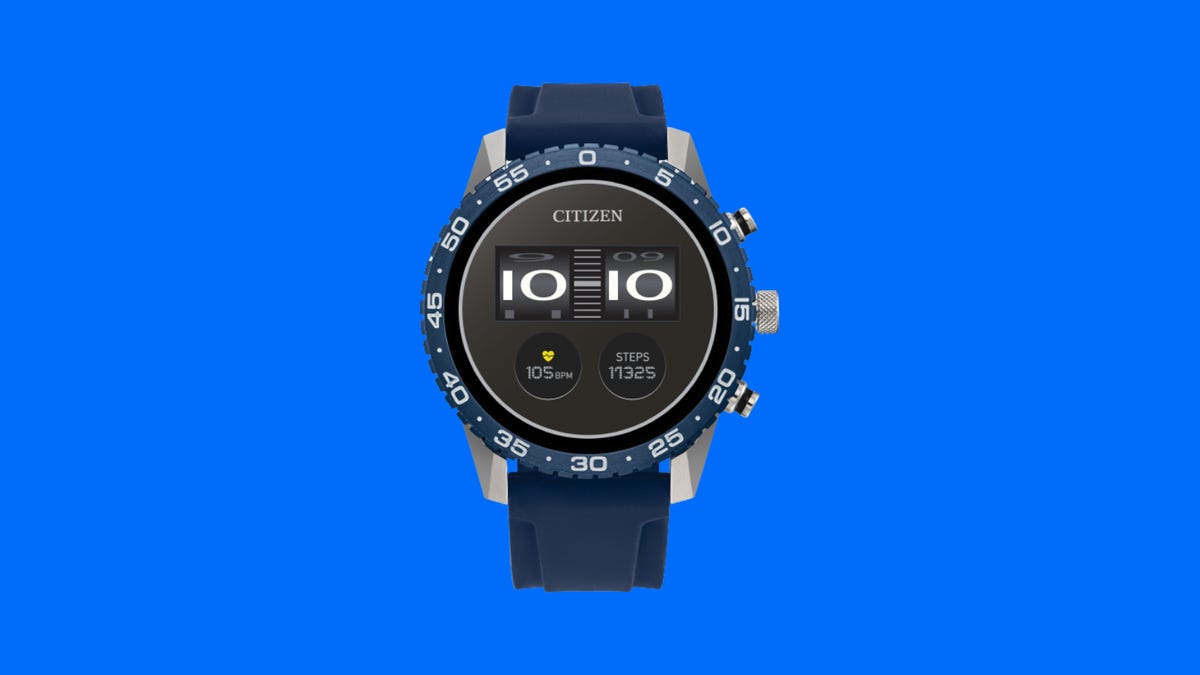Citizen's Newest Wearable Uses AI to Gauge Your Alertness and Fatigue
Citizen's new CZ Smart watch lineup is another sign that wearables are trying to get better at linking mental and physical wellness.

The Citizen Watch.
As smartwatches have gotten better at measuring vitals and exercise statistics, there's been more emphasis on how they can be used to improve our sleep and mental wellbeing. Watchmaker Citizen is the latest company attempting to do just that with its new CZ Smart watch lineup, which debuted at CES and will arrive in the US this March.
The company says its new smartwatches use tools built based on research from the NASA Ames Research Center Fatigue Countermeasures Laboratory to assess fatigue and alertness levels. The "casual" finish of the CZ watch starts at $350 (roughly £290, AU$520), while the "sport" model starts at $375.
The Citizen CZ Smart watch is just the latest example of how smartwatch makers are attempting to explore the way factors like sleep and stress impact our physical health. It's also another sign that the next step for wearables isn't just tracking health metrics, but also providing advice and additional context around what those numbers actually mean.
The watch's main feature is its Alert Scores, which are generated after a user takes the app's Alert Monitor test. Citizen says the test is based on the Psychomotor Vigilance Test that NASA has used to assess astronauts' alertness. The Alert Monitor tests are brief and can be taken daily, according to Citizen. It's also worth noting that NASA previously built its own app for measuring alertness based on the Psychomotor Vigilance Test.
Sleep tracking is another major focus for the CZ Smart watch lineup. Citizen claims that its software can understand a wearer's chronotype -- i.e. whether you're a morning or evening person. The watchmaker uses IBM's Watson Studio to crunch the wearer's sleep data and previously mentioned Alert Scores over the course of seven to 10 days to determine the user's chronotype.
The watch then combines chronotype information and Alert Scores with other more familiar data points like heart rate, sleep patterns and activity to learn about the wearer's habits and make suggestions about how to mitigate fatigue and boost alertness. These recommendations, which Citizen calls Power Fixes, were also designed using NASA research, according to the company.
Otherwise, Citizen's new watches have the standard array of smartwatch features, such as a microphone and speaker and the ability to run apps like Spotify, Amazon Alexa, Strava and YouTube Music. Sensors that have become common on most smartwatches, like a gyroscope, accelerometer, barometer, altimeter and blood oxygen monitor, are also present. The watches run on Google's Wear OS software and are compatible with both iOS and Android phones.
It's impossible to say whether Citizen's Alert Monitor and chronotype observations are useful or accurate without trying the watch. The launch also comes at a time when there has been increased scrutiny on the amount of data tech devices gather about their users and how that data is protected. But the overall goal behind Citizen's new smartwatches falls in line with general trends we've seen in the wearable tech space over the past couple of years.
Apple, Fitbit and Samsung, for example, each added new sleep tracking features to their respective wearables in 2022. Fitbit also introduced the Sense 2 in August, which includes new sensors to passively detect when your body may be showing signs of stress.

